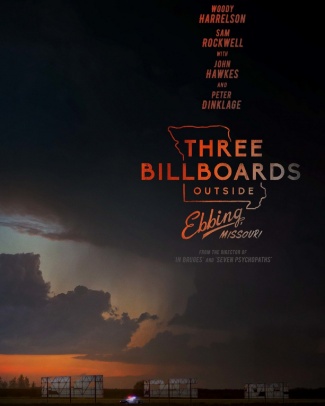I am not a fan of the “daring plot twist”. You know the sort: from Darth Vader's admission of paternity in Star Wars: The Empire Strikes Back to the unveiling of Keyser Soze in The Usual Suspects. Not forgetting Norman Bates' Mother's Day moment or Charles Kane's Rosebud reminiscence.
For some reason these are hailed as masterful moves when, in most cases, they are little more than sleight of hand. The writers and directors knew, from day one, where their story was going: they just hid it from you, the audience, by misdirection and omitting key details.
More interesting are those moments of “I can't believe they did that”. And while cinema literature is stuffed with plot twists, it is slightly less good at recording the latter. I had to dig deep to find just a few: and they are obscure. The naked-woman-as-bonnet-ornament in Fair Game (1986), the utterly unexpected slaying of Brad Pitt in Burn After Reading and the gross, allegedly done without special effects, moment when Divine eats dog poo in Pink Flamingoes.
After each such moment there is a sharp intake of breath, a stunned silence as the audience processes what they have just seen. They didn't! Did they? How could they have done that? Said that? Thought that?
Which is a very long-winded way of saying: prepare yourself for Three Billboards outside Ebbing, Missouri.
The set-up is harsh, uncompromising: grieving mum, Mildred Hayes (Frances McDormand) is angry at the local police department's foot-dragging in the investigation of the brutal rape and murder of her daughter. So she rents three billboards just outside of town to challenge the commitment of popular police chief, Bill Willoughby (Woody Harrelson).
What follows is a mix of the predictable and the wholly unexpected. One half of the town turns on Mildred: “we sympathise, but...is this any way to get results?”: the other turns on the police department which has a reputation for incompetence and brute racism. For “n*****-torturing”. Or as thuggish Officer Jason Dixon (Sam Rockwell) ripostes when accused of same: “you can't say that. Nowadays it's person-of-colour-torturing”.
Whether it's in Mildred's takedown of the hypocrisy of the town's priest, or her awful last words to her daughter, no punches are pulled. Stir in the fact that Willoughby is dying of cancer, and probably isn't quite the insensitive redneck a lesser film would have turned him into and what is simultaneously amazing and wondrous is that Three Billboards forces you NOT to take sides.
Because, as the film proceeds you realise that not one of the central characters is entirely blameless – or guilty. Each and every one is frail, fallible, human and capable of doing better. Which may be the film's single weakness: because there were times I found it hard to believe its sheer optimism; its suggestion that no matter how low an individual sinks they are yet capable of redeeming themselves through kindness or heroism or, in some cases, both.
But that, in the end, in a film that is not afraid to depict the very worst in human behaviour, is what makes it different. We have grown so cynical, so distrusting of our institutions and those in power that when a film dares suggest that people can do better that, in itself, has become an incredible moment.
Never mind the cussing and the violence (there is a lot of both): this is a film about redemption, grounded in the firm belief that people can learn to be better. Its central message, delivered from the mouth of the least likely philosopher in the film – she read it on a bookmark! - is that "anger only begets anger". And if that is true, then perhaps the corollary also holds: that forgiveness and mercy can help us to make the world a better place.
Does that sound preachy? Trust me, Three Billboards is anything but.
Directed by Martin McDonagh, who was also responsible for the darkly comic and much under-rated In Bruges, this film comes highly recommended, with a clutch of Oscars and Oscar nominations. Last week, it scooped Best Leading Actress for Frances McDormand. Sam Rockwell and Woody Harrelson toughed it out for Best Supporting Actor: the honour went to Rockwell, but if it were up to me, both would have won it. Three Billboards was also nominated for best picture, best original screenplay and best original music score.
It is a breath of cinematic fresh air and will be playing for at least another week at the Broadway. Catch it now before it goes!
Four and a half stars!


